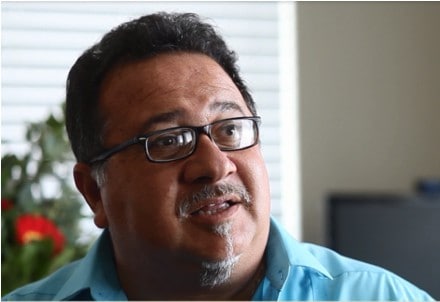Paul* is a slight boy with an above average IQ and impressive verbal skills. Paul also has a diagnosis of Bipolar, Attention Deficit Hyperactivity Disorder and Depression. Norma had a promising job with the potential for career advancements. However, she changed tracks for a job with less responsibility and fewer hours per week due to overwhelming family responsibility. Norma is Paul’s mother. After a recent divorce, Norma became solely responsible for Paul’s treatment, and the strain has been undeniable. Over the past five years, Paul has been hospitalized 11 times and on six-month probation for assaulting a public servant.

Unfortunately this South Central Texas family’s story is not unique. Sixty-thousand youths and families across the Lone Star State have mental health needs. Fifty-eight of children in Texas who need mental health services, however, do not receive them.
The School’s Texas Institute for Excellence in Mental Health (TIEMH) works to improve mental health care options across Texas. As part of that mission, TIEMH is helping to oversee the coordination and expansion of mental health services in communities throughout the state.
“This expansion, called System of Care, helps to ensure that Texas children and adolescents with mental health needs are given the best possible treatment,” said Dr. Molly Lopez, Director of TIEMH. “System of Care also helps people like Norma handle the day-to-day difficulties of caring for loved ones with mental health needs.”
TIEMH has recently secured federal resources through a partnership with Texas Health and Human Services Commission to implement a plan for statewide expansion of the System of Care, and in turn provide more Texans with access to effective mental health services.
To accomplish this goal, communities are using Wraparound, a model of care that draws on a team of individuals to assist families in reaching their goals. For example, a youth may find support from a coach, a teacher, or a parent in addition to a counselor or mentor. Wraparound empowers communities to work together to find creative ways to support families, relying on individuals who will be there when providers are gone. It doesn’t take someone with text book knowledge to reach a child; it takes someone who cares.

Roger Martinez, the Chief Juvenile Probation Officer for El Paso County, was initially skeptical of System of Care. However, as he navigated the system he saw things really begin to change for the better.
“As we came together as a community I realized that this is what it takes to get things done,” Martinez said. “For us to understand the issue, to understand the problem,[and] understand how we come to a common solution within the system.” Watch the video of Roger Martinez speaking about System of Care here.
Thanks to Wraparound, Paul is now thriving. He hasn’t been hospitalized in the past 12 months, participates in Boy Scouts and personally advocated for children’s mental health legislation. Norma has recently returned to working 40 hours per week and is considering a promotion.
Before implementing Wraparound, families were often blamed for a child’s mental health issues. Thanks to Wraparound, families play active roles in treatment – improving the chances of sustainability and keeping the child at home in the community rather than a care facility.
TIEMH is supporting numerous communities across the state to develop Wraparound, evaluate these efforts, and help families like Norma and Paul’s find a different approach to mental health treatment. Texas communities have already seen positive results, including reductions in delinquent behavior and less strain on caregivers.
*Names have been changed.
Posted October 10, 2013


